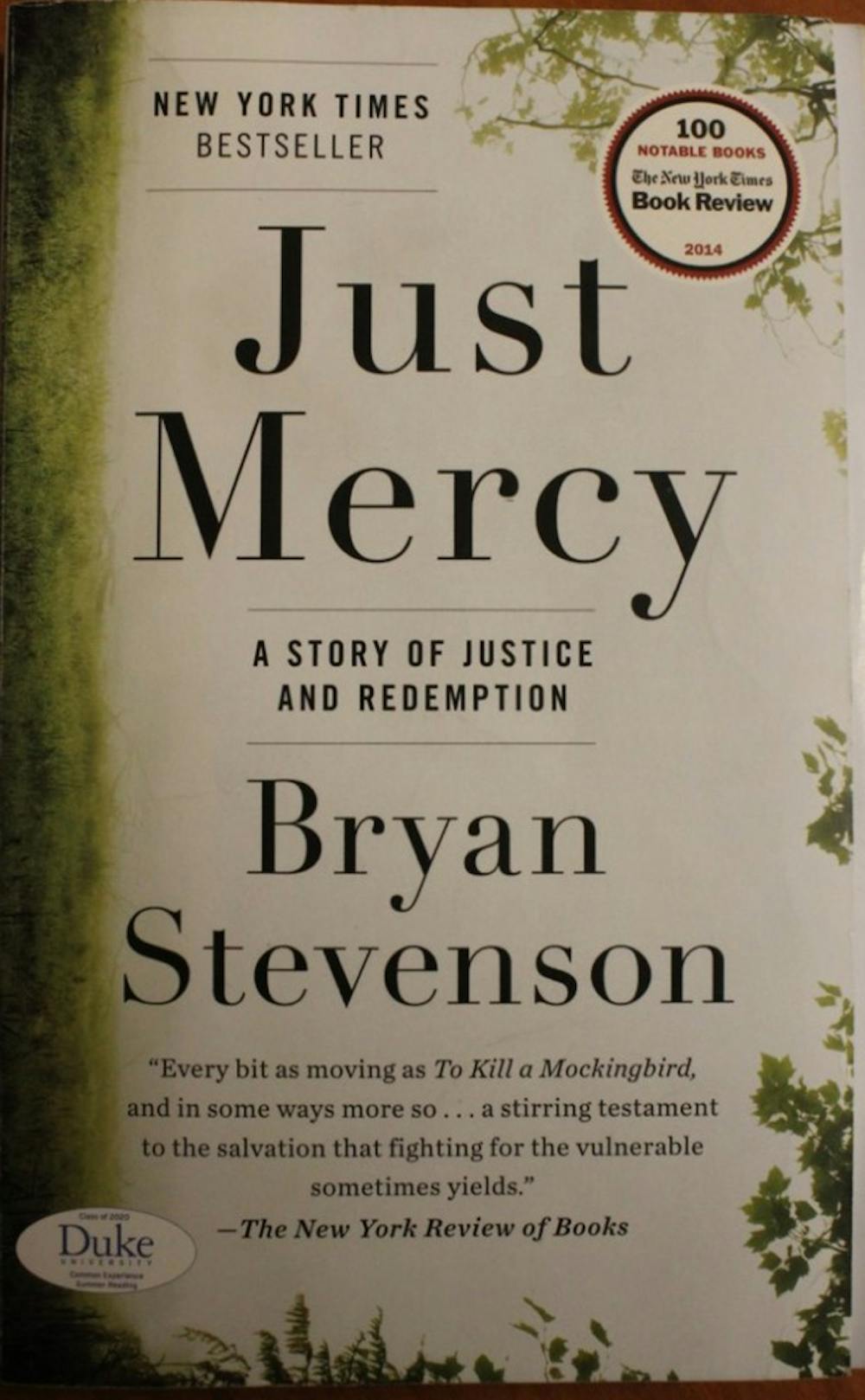The Duke Common Experience is one almost every student has endured; it is common, after all. This year’s common experience was “Just Mercy” by Bryan Stevenson, an emotional novel about the author’s experiences working as a lawyer with underprivileged people on death row. The novel particularly focuses on the author’s work with a wrongly convicted man named Walter McMillian. Even if you are not a part of the Class of 2020, chances are you’ve heard of the book, the author or the rave reviews the first years have been giving it. Despite the fact that it touches on some pretty touchy topics — the death penalty and race relations in the South, for example— so far “Just Mercy” has not generated the negative publicity that “Fun Home” did last year after one freshman publicly and adamantly refused to read it.
“Just Mercy” may have been a less controversial choice than last year’s because of just that: it’s a less controversial book. Despite the fact that it does touch on divisive topics, Stevenson supports his claims with facts and statistics, and the personal stories of his clients’ incarcerations and trials are heartbreaking regardless of one’s political views.
“I wouldn’t necessarily label [“Just Mercy”] as controversial” said Andres Camino, a First-Year Advisory Council Co-chair and member of the summer reading selection committee. “It will definitely spark conversations, which in the end is the goal of the summer reading book.”
Camino also noted that the controversy surrounding last year’s novel did not affect this year’s decision. Instead, the book was chosen because of the lessons it teaches and important themes it embodies.
“I think one of the most important lessons to learn from reading the book is about listening to and understanding others’ stories,” Camino said. “You come to Duke and meet all these amazing and diverse students and everyone has a unique story and one of the biggest first steps to understanding and growing is listening to others.”
Although the book may not have been as publicly controversial as “Fun Home,” it still attracted its fair share of criticism. One of the topics touched on in the novel is the unfair incarceration of mentally ill individuals, and some first-year readers believed Stevenson was arguing that mentally ill individuals should not be held responsible for their crimes. Another criticism was not of the book, but of the audience. “Just Mercy” was written with a more liberal tone, so it makes sense that it was accepted by the more liberal audience that Duke students make up.
Overall,“Just Mercy” is a powerful book and a logical choice for this year’s summer reading. It touches on a plethora of topics that are not generally brought up in day-to-day conversation and that are not often publicized by the media. While the death penalty has been a subject of debate for as long as anyone can remember, issues like juveniles serving life sentences for crimes they committed when they were 13 or 14 or mothers not being able to afford proper prenatal care and getting blamed for the deaths of stillborn babies are just two examples of the topics this novel brings to the forefront. Criticisms aside, it makes for an emotional and interesting read, and is a book for all future lawyers. Duke students and open-minded people should have it in their library.
Get The Chronicle straight to your inbox
Signup for our weekly newsletter. Cancel at any time.

